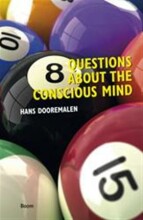Theories of persuasion
14 important questions on Theories of persuasion
In order to understand persuasion, one must know...
- Who says what to whom with what effect
Speaker - Speaker + message + medium + audience = effect
- Theories focus on single or different stages of this
What are the three theories of persuasion?
- McGuire's information processing model
- Cognitive response model
- Dual process models
What does McGuire's information processing model look like?
- Exposure/presentation
- Attention/Awareness
- Comprehension/Understanding
- Acceptance
- Retention
- Action
- Higher grades + faster learning
- Never study anything twice
- 100% sure, 100% understanding
What are the assumptions of McGuire's information processing model? And what are counter arguments?
- Hierarchical model: people must go through each of the stages
- Skipping steps is possible
- Systematic processing is required
- Persuasion can occur without this
- Learning of the message is essential for persuasion
- Little scientific support
- Passive receiver
What are the assumptions of the Cognitive Response Model?
- The receiver is active
- Not always correlation between argument recall and attitude change
- Thoughts are also important
- Receiver relates message with existing information
- (Strong arguments:) Favorable thoughts: intended change
- (Weak arguments:) Unfavorable thoughts: unintended/no change
- The effect of argument strength disappears when distracted (when systematic processing is required)
- People often do not think about advertising this deeply
What is the thought listing technique?
- PP list all thoughts during message presentation
- Catergorize relevant thoughts as (un)favorable
- Create index
What are the dual proces models and what do they have in common?
- ELM: Elaboration Likelihood Model
- HSM: Heuristic Systematic Model (Peripheral Central Model)
- Information is being processed systematically or superficially
- Processing mode depends on ability and motivation
What is the Elaboration Likelihood Model?
- Persuasion Attempt
- Audience factors (high or low motivation and ability)
- Processing approach (Deep (quilitative) or superficial (attractiveness messager or number of arguments)
- Persuasion outcome (lasting change or temporary change)
What predicts ability?
- Knowledge
- Distraction/time pressure
- Repetition
What is the role of knowledge in processing ability?
Wood et al. (1985):
- Counter-attitudinal message against preservation of the environment.
- Argument strength had more effect on most knowledgeable students
- Argument length had more effect on least knowledgeable students
What is the role of distraction and time pressure in processing ability?
- When the processing intensity is low, people are more likely to use heuristics
- The case of multitasking: less attention for ads
What is the role of repetition in processing ability?
More repetition -> more ability to process
But too much -> irritation/wear out (particularly systematic processing)
What is the role of processing motivation?
- There are individual differences in this motivation
- It is greater when something is personally relevant
- When something relates to values, goals and needs
- Razor experiment. Most positive attitude when:
- High personal Relevance & Strong arguments
- Low personal relevance & Famous endorses
- When people are prone to considerable risk
- Fear appeals
Are fear appeals effective?
- Severe threat is unpleasant: results in defensive processing
- Strong arguments: more motivated to process the recommended action (should be clear)
- Self-efficacy: people should feel capable of engaging
- If low: effectiveness is unlikely
So effective if:
- They have informational value
- The message is personally relevant
- When combined with self-efficacy
The question on the page originate from the summary of the following study material:
- A unique study and practice tool
- Never study anything twice again
- Get the grades you hope for
- 100% sure, 100% understanding






























